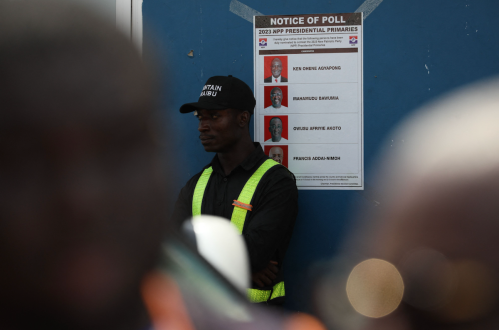Wednesday’s sharp uptick in violence in Syria led the news, but overshadowed a far more peaceful milestone. The announcement of Libya’s election results on Tuesday marked the end of a tumultuous period in which three revolutionary Arab states (Tunisia, Egypt, and Libya) all held their first sets of genuine electoral contests — among the freest and fairest ever carried out in the Arab world. With many dozens of parties and many hundreds of candidates running, the elections were also the most competitive. And in most — but not all — of these polls, Islamist parties and movements came out ahead. This seems a worthy moment, then, to take stock of what the outcomes in these three North African countries can — and can’t — tell us about the future of democratic politics in the Arab world.
It’s not surprising that Islamist movements have been the largest beneficiaries so far of the Arab Awakening’s newly competitive politics. Ever since Algeria’s military-backed government canceled elections in 1992 to prevent an Islamist victory, scholars have predicted that more open Arab elections would spell success for Islamist movements. And for at least that long, the prospect of Islamists rising to power through the ballot box has fostered anxiety in Washington and elsewhere in the region (particularly Jerusalem). Thus, the June 30 inauguration of the Muslim Brotherhood’s Mohamed Morsy as president of Egypt has produced predictable jeremiads that the Arab Spring is now becoming an “Islamist winter” — one that presages illiberal, ultimately undemocratic politics and anti-American, anti-Israeli foreign policies.
The Brookings Institution is committed to quality, independence, and impact.
We are supported by a diverse array of funders. In line with our values and policies, each Brookings publication represents the sole views of its author(s).



Commentary
Op-edLearning to Live with the Islamist Winter
July 19, 2012